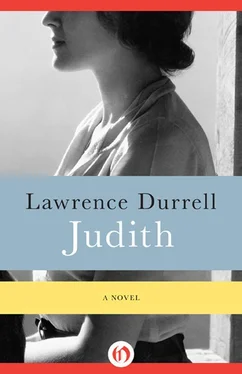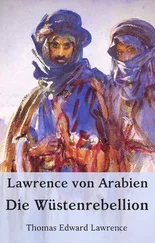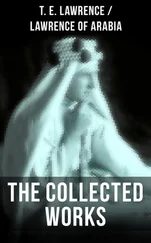“What is my father’s photograph doing on your desk?”
“Ah, you noticed it?”
“Yes.”
Miss Peterson depressed her cheeks in a smile which hovered on the edge of mischief, before turning to a kind of sadness. She said: “I was his mistress for many years. You could have been my child. That is why I was curious to see you. I only once caught a glimpse of you when you were small.”
“I heard he was in love with a woman called Peter.”
“I am Peter.”
“But she went away. I don’t know why.”
“There were several reasons. It was for his sake…
“But, Miss Peterson…
“Call me Pete if you wish; everyone does.”
“Pete. And you brought me here?”
“Well, not me entirely. I knew they were going to try and get you out and I asked for you here; but I don’t expect you’ll stay long. I imagine that Professor Liebling will want you in Jerusalem.”
“The physicist?”
“Yes — he arranged it all. It has something to do with your father’s work.”
“I see!” Judith lifted her head from the pillow.
Pete stood up now, very thin and tall; even in the rosy candlelight her pallor was striking, giving her a witch-like cast. She whispered: “I’ll go now and get some sleep. Good-night, Judith.” As she turned to go, Judith put out her arm and drew her face down towards her own. They kissed briefly and smiled. “See you in the morning.”
Next day dawned fine and brilliant, and Judith made her way to the gaunt dining-room for her breakfast, walking rapturously through the green groves of fruit-trees on grass made springy and verdant by frequent watering. Everywhere there were sprinklers at work, spouting a fine hazy parabola of water. She began to accustom herself to the geography of the place, and found her way back to Miss Peterson’s office without much trouble. Here everything was bustle and activity. A couple of typewriters chattered; everywhere lay files and rosters and maps in coloured chalk overscribbled with engineers’ mathematical computations. Pete greeted her and detached herself from the melée after giving a few orders. “You had better come on deck with me,” she said. “From there you will see the whole layout of the settlement as well as most of the others.” The “deck” turned out to be the flat roof of the tower which they climbed by a wooden staircase. Emerging into the brilliant sunshine, Judith saw the whole valley laid out around them, narrowing and edging into a slot as it entered the single great defile in the mountains, out of which the river flowed, to broaden immediately into a wide, smoothly running stream which watered the broad pastures and meadows on either side. “In fact,” said Pete, “our valley sticks out like a very sore thumb into enemy territory. It’s roughly a triangle contained between these two mountain ranges — Lebanon this one, and Syria that.”
“And the border?”
“Approximately the ranges mark it, but it’s never completely closed and there is quite a lot of marauding and smuggling. Up there you can see the patches of the seven settlements along the escarpment. They are actually on the border.” She named them slowly as she pointed, but each time as she mentioned the Hebrew name, she added, as a sort of pseudonym, the name of a town or a country which characterized the inhabitants. It appeared that these settlements were called respectively, Brisbane, Brooklyn, Odessa, Lubeck.
“No, it’s not code,” said Peterson. “It’s simply that the inhabitants come from those places. Talk about a tower of Babel. But then you see that Israel consists of sixty nations. A patchwork quilt.”
“It looks so peaceful.”
“Most of the time it is. Sometimes not. See the bullet holes in that wall. Arab fire last year, one night, without warning.”
“But don’t the British keep the peace?”
“When it suits them. I think they would be rather glad if their Arab friends wiped out the kibbutzim; we are an embarrassment to them. On the Lebanon side we are well protected because we control the crown of the mountain and the settlements are spread out along it — good defensive positions with steep cliffs the other side. On this side, alas, it is not so good because the Syrians are astride the crown and we are down in the valley. They could lob stuff down at us quite easily and we couldn’t hit back with our weapons. Luckily, up to now, they don’t seem to have anything heavier than machine guns.”
At one end of the long terrace there stood an old-fashioned heliograph manned by a couple of girls, one of whom was the taciturn Anna. Seeing Judith’s curious eyes on the machine as it winked away, eliciting a similar star of light from the second of the settlements, Pete said: “We’ve no telephones, alas; heliograph by day and torch signalling by night is what we have to do.”
One of the girls, scribbling on a signals pad, looked up and said: “Pete — there was some sniping in Amir last night; nobody hurt. They say they want more apples against apricots weight for weight.”
Pete snorted. “The last lot of apricots were weary, tell them. Moreover, tell them from me that they are just a bunch of Glasgow Jews thriving on the sharp practice they picked up from the Scots. Tell them, moreover, that we honest lowland Jews from Poland, Latvia, Russia and Brooklyn hold them in massive contempt.” Chuckling, the girls spelled the message while Pete took a turn or two upon the deck, looking indeed as business-like as an admiral on his flagship. “You see,” she said to Judith, “we have a perimeter round the camp but we’ve long since overflowed it and put the whole valley under cultivation. It took thirty years and about two hundred lives to drain what was stinking marshland and turn it into the richest valley in Palestine. The Arabs never did anything with it, and were glad to sell it off bit by bit — now, of course, they would like it back. So you see, we have our problems.”
One of the signallers turned her head and giggled as she said: “They’ve replied, Pete.”
“What do they say?”
“They say: ‘Tell Pete to stuff it!’ ”
Pete grunted and turned aside, smiling. “Today,” she said, taking Judith’s arm, “I’m not going to attach you: just wander around and have a look at everything — orchards, vegetable plots, chickens. We even have a flock of sheep. Do you see where the river turns out of the mountain and gets broad? Those white things are the sheep at pasture. It’s the very edge, though; the border starts inside the ravine and if you go too close you are likely to get a bullet through your hat.”
Judith took her at her word and spent the whole morning inspecting the settlement. The spring flowers were in their first glory — carpets of scarlet and blue anemones, hollyhock, cyclamen, lupin, rose. She gathered herself enough for a bowl as she sauntered.
At lunchtime she managed to borrow a small pottery jar for her bouquet of flowers and she put them on the window-sill of her tiny room. Looking around her at its primitive simplicity, and its view onto the beds of carefully tended flowers, she suddenly felt an absurd disposition to cry; and cry she did a little for relief, telling herself that it was “just a reaction”, though she could not have defined the word with any precision. She felt rather like a snake about to shed its skin, to slough off the misery of the past and take on the bright hues of a present in this lovely place. Yet, from time to time, the past came back and almost choked one: rounding a hedge by the vegetable gardens she had suddenly come upon a row of smoking incinerators burning garbage — old turnip-ends, newspapers, kitchen refuse, rotten pumpkins. The incinerator was being fed by a bunch of Poles and Americans whom the smoke had turned black as demons. Her memory turned a double somersault and scattered all her self-possession. The incinerators! It was all she could do not to be violently sick.
Читать дальше












